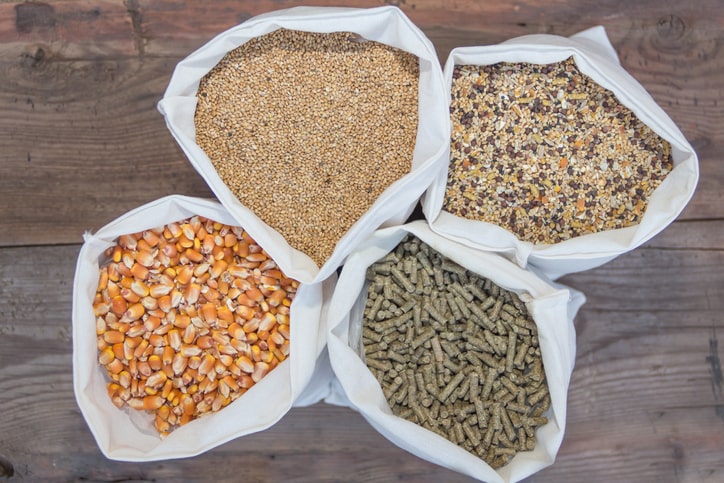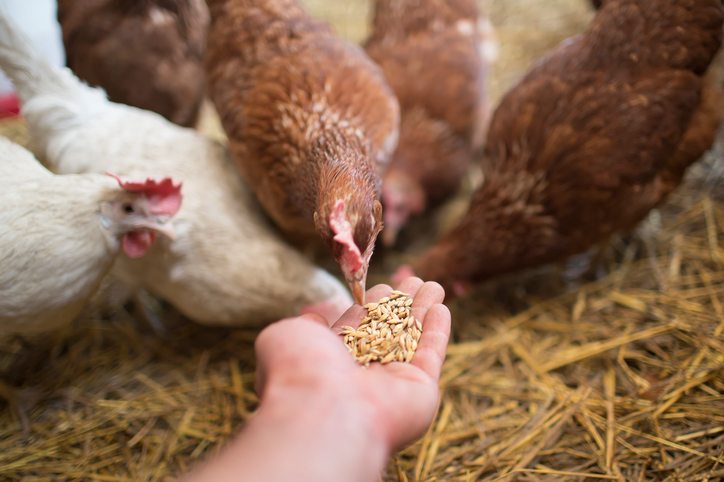Poultry enthusiasts know the importance of maintaining high-quality feed for their chickens. Understanding how to store chicken feed long term can save both effort and money, ensuring that your flock remains healthy and productive. This comprehensive guide will take you through everything you need to know about long-term chicken feed storage.

Why Proper Feed Storage is Crucial
Nutritional Value Maintenance
Ensuring your chicken feed retains its nutritional value over time is crucial for the health of your chickens. Feed that is not stored correctly can lose essential nutrients.
Pest and Rodent Prevention
Poorly stored feed can attract pests and rodents, potentially introducing diseases to your flock.

Types of Chicken Feed
Pellets, Crumbles, and Mash
Understanding the different types of chicken feed available, such as pellets, crumbles, and mash, can help you choose the right storage method.

Containers for Storing Chicken Feed
Plastic Bins
Use airtight plastic bins to keep feed fresh and free from moisture. Airtight containers also help in preventing pests.
Metal Containers
Metal containers are durable and provide excellent protection against rodents.
Food-grade Buckets
Food-grade buckets with lids are a popular option for many poultry keepers. Ensure these buckets are cleaned before use.

Environmental Factors
Temperature and Humidity
Store chicken feed in a cool, dry place to prevent mold growth and spoilage. Aim for low humidity levels.
Light Exposure
Keep your feed away from direct sunlight to maintain its quality and longevity.
Steps to Store Chicken Feed Long Term
Inspect the Feed
Before storing, inspect the feed for any signs of mold or infestations.
Use Airtight Containers
Place the feed in airtight containers to prevent exposure to air and moisture.
Store in a Cool, Dry Place
Keep the feed in a location that remains consistently cool and dry.
Regularly Rotate Stock
Implement a stock rotation system to ensure older feed is used first.
Common Mistakes and How to Avoid Them
Ignoring Expiry Dates
Always check the expiry dates and use the oldest stock first.
Improper Sealing
Ensure all containers are properly sealed to prevent contamination.
Overlooking Pests
Regularly check storage areas for signs of pests and take immediate action if any issues are detected.
Additional Tips for Long-Term Feed Storage
Consider Freeze-drying
Freeze-drying can be a viable option for preserving feed over an extended period.
Vacuum Sealing
Using vacuum-sealed bags can extend the shelf life of chicken feed.
Professional Storage Solutions
For those with larger flocks, professional storage solutions may be worth considering.
Eco-Friendly Storage Solutions
Reusable Containers
Opt for reusable containers to minimize environmental impact.
Composting Spoiled Feed
If you do encounter spoiled feed, consider composting it rather than disposing of it.
In-House Feed Production
Making Your Own Feed
Some poultry enthusiasts prefer to make their own feed, allowing for better control over ingredients and freshness.
Budget-Friendly Options
DIY Storage Solutions
Explore DIY storage options that can be cost-effective while still maintaining feed quality.
Relate and discover more about black chicken, and other chicken breeds.
Ensuring Freshness Over Time
Regular Quality Checks
Periodically check your feed for any signs of spoilage or nutritional degradation.
Understanding Shelf Life
Educate yourself on the typical shelf life of different types of feed to optimize storage practices.
Conclusion
With the right techniques and a bit of effort, you can master how to store chicken feed long term. Proper storage is essential for maintaining the health and productivity of your flock.
As an Amazon Associate, I earn from qualifying purchases.
FAQs
How often should I check my chicken feed for spoilage?
It is advisable to check your chicken feed for spoilage on a monthly basis.
Can I store different types of feed in the same container?
It is best to store different types of feed in separate containers to maintain their specific attributes.
What should I do if I find mold in my feed?
If you find mold in your feed, dispose of it immediately and clean the storage container thoroughly.
As an Amazon Associate, I earn from qualifying purchases.








